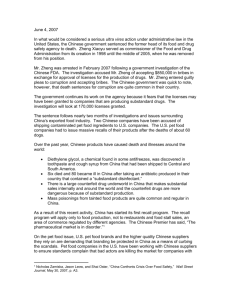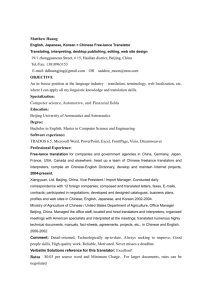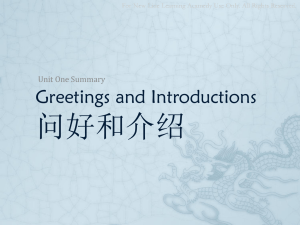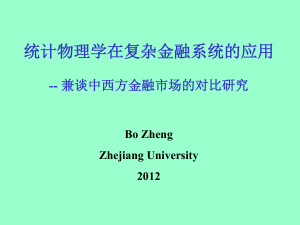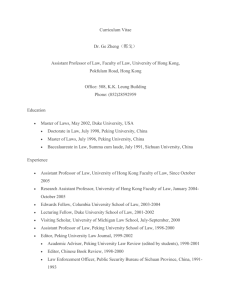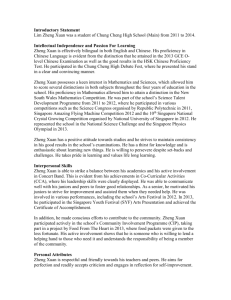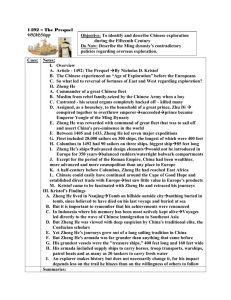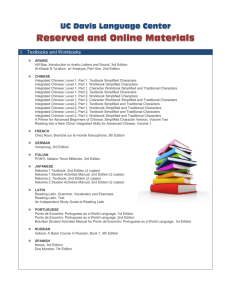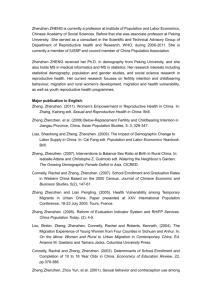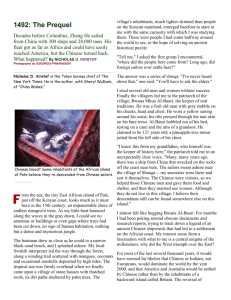CHAPTER 13: CHINA
advertisement
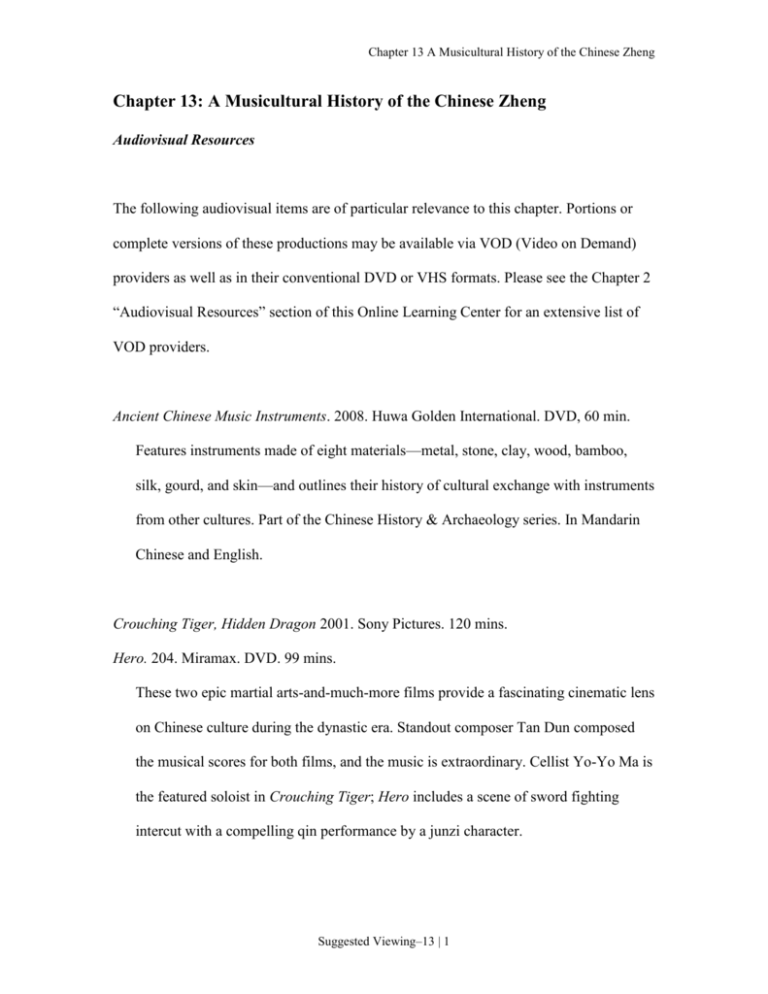
Chapter 13 A Musicultural History of the Chinese Zheng Chapter 13: A Musicultural History of the Chinese Zheng Audiovisual Resources The following audiovisual items are of particular relevance to this chapter. Portions or complete versions of these productions may be available via VOD (Video on Demand) providers as well as in their conventional DVD or VHS formats. Please see the Chapter 2 “Audiovisual Resources” section of this Online Learning Center for an extensive list of VOD providers. Ancient Chinese Music Instruments. 2008. Huwa Golden International. DVD, 60 min. Features instruments made of eight materials—metal, stone, clay, wood, bamboo, silk, gourd, and skin—and outlines their history of cultural exchange with instruments from other cultures. Part of the Chinese History & Archaeology series. In Mandarin Chinese and English. Crouching Tiger, Hidden Dragon 2001. Sony Pictures. 120 mins. Hero. 204. Miramax. DVD. 99 mins. These two epic martial arts-and-much-more films provide a fascinating cinematic lens on Chinese culture during the dynastic era. Standout composer Tan Dun composed the musical scores for both films, and the music is extraordinary. Cellist Yo-Yo Ma is the featured soloist in Crouching Tiger; Hero includes a scene of sword fighting intercut with a compelling qin performance by a junzi character. Suggested Viewing–13 | 1 Chapter 13 A Musicultural History of the Chinese Zheng Journey of Strings. 1997. Produced and directed by Hunt Hoe. Distributed by Cinema Guild. VHS, 24 min. Explores the history of chordophones, featuring the zheng from China, santur from Iran, bouzouki from Greece, guitar from Spain and other instruments. First volume in the Journey in Music series. JVC Video Anthology of World Music and Dance, East Asia I-V. 1990. Distributed by Rounder Records. Vols. 1-5. VHS. Especially relevant to this chapter are a solo zheng performance (3-4), a solo pipa performance (3-2), a Beijing Opera selection (3-10), a Tibetan masked drama (4-15), and a Uighur muqam (Uygur mukam) instrumental piece (5-10). Also noteworthy are a Mongolian khoomii (xoomij) “overtone singing” performance and pieces performed using board zither chordophone relatives of the zheng: the Korean kayagum (5-5) and the Vietnamese dan tranh (dan tranli) (6-6* [*Volume I of the Southeast Asia section of the anthology]). See accompanying guide for contextual information. Number 17 Cotton Mill Shanghai Blues Music in China. 2003. Shanachie Home Video. DVD. 53 mins. Filmed in the early 1980s, this film features musical performance shot in Shanghai, Beijing, and the Islamic northwest region (Xinjiang Uighur Autonomous Region) in the period following the Cultural Revolution (1966-76). Part of the Beats of the Heart series by Jeremy Marre. Suggested Viewing–13 | 2 Chapter 13 A Musicultural History of the Chinese Zheng Performing Arts of China: The Opera (LYRDV-1003); Performing Arts of China: Instruments and Music (LYRDV-1007); and Echoes from Tibet (LYRDV-1008). 2004. Lyrichord Discs, Multicultural Media. VHS and DVD. Each c. 30 mins. Originally released in the 1980s, these recordings are drawn from film footage of field tapes by the late ethnomusicologist Deben Bhattacharya. The Perfumed Handkerchief. 1981. Kultur Films International. VHS. 70 mins. Full-scale Beijing Opera, performed by the Peking (Beijing) Opera Company. Renowned soloists star in this Chinese-style comedy of manners. English subtitles allow you to follow the action while enjoying the distinctive singing style, stylized gestures, and elaborate costumes. Voices in Exile. 2005. CustomFlix. DVD. 65 mins. Documentary film chronicling the lives and aspirations of Tibetans in exile from the Chinese occupation. First-time Tibetan director Tenzin Wangden Andrugtsan creates a compelling portrait of the complex individual, cultural, and political realities of a disenfranchised people. ***For additional resources, go to Michael Bakan’s personally maintained website at www.michaelbakan.com*** Suggested Viewing–13 | 3
